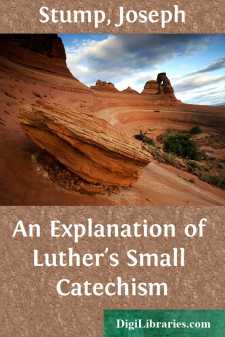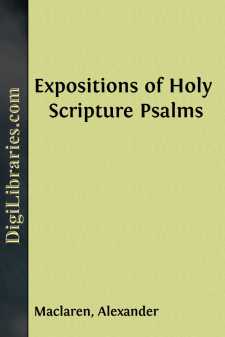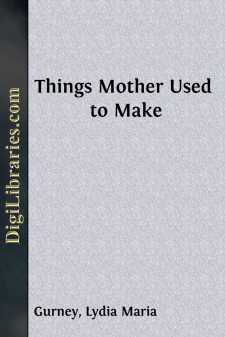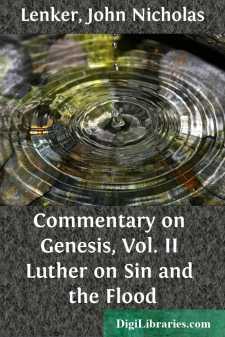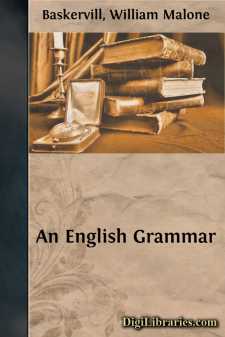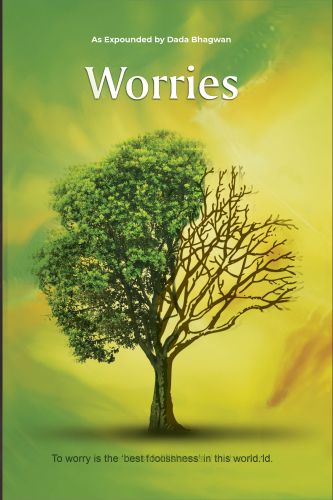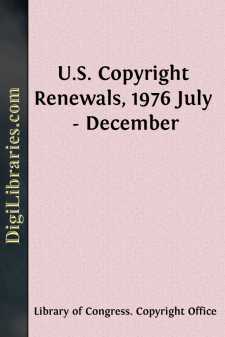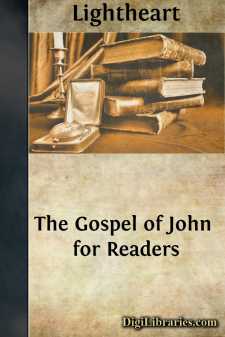Categories
- Antiques & Collectibles 13
- Architecture 36
- Art 48
- Bibles 22
- Biography & Autobiography 813
- Body, Mind & Spirit 142
- Business & Economics 28
- Children's Books 17
- Children's Fiction 14
- Computers 4
- Cooking 94
- Crafts & Hobbies 4
- Drama 346
- Education 46
- Family & Relationships 57
- Fiction 11829
- Games 19
- Gardening 17
- Health & Fitness 34
- History 1377
- House & Home 1
- Humor 147
- Juvenile Fiction 1873
- Juvenile Nonfiction 202
- Language Arts & Disciplines 88
- Law 16
- Literary Collections 686
- Literary Criticism 179
- Mathematics 13
- Medical 41
- Music 40
- Nature 179
- Non-Classifiable 1768
- Performing Arts 7
- Periodicals 1453
- Philosophy 64
- Photography 2
- Poetry 896
- Political Science 203
- Psychology 42
- Reference 154
- Religion 513
- Science 126
- Self-Help 84
- Social Science 81
- Sports & Recreation 34
- Study Aids 3
- Technology & Engineering 59
- Transportation 23
- Travel 463
- True Crime 29
An Explanation of Luther's Small Catechism
by: Joseph Stump
Description:
Excerpt
Thou shalt not steal.
What is meant by this commandment?
We should so fear and love God as not to rob our neighbor of his money or property, nor bring it into our possession by unfair dealing or fraudulent means, but rather assist him to improve and protect it.
The object of this commandment is to protect every man in the possession of that which is lawfully his own. Without such protection the individual could not support his life, and society could not exist. The industrious and thrifty would be at the mercy of the lazy and wicked. This commandment forbids us to use dishonest means of acquiring property. It commands us to assist our neighbor to improve and protect his own.
PROPERTY consists of whatever each person lawfully acquires of the earth's lands, forests, water, mines, houses, goods or money. It may be rightfully acquired by original claim, inheritance, gift, or labor of body or mind. Honest labor united with economy is the best way to acquire it.
UNEQUAL DIVISION. God, who is the absolute owner of all things, [I Cor. 10:26] divides to each as He will. [Jer. 27:5] He "maketh poor and maketh rich." [I Sam. 2:7, Prov. 22:2+] Much poverty, however, is due to men's own laziness, idleness, [II Thess. 3:10+] carelessness or extravagance; and much wealth has been wrongfully gained contrary to God's will as expressed in this commandment. Communism, or the equal division of property among all men, is not practicable. It failed in the apostolic Church. [Acts 5:1-10] If all things were equally divided, some would soon clamor for another division.
POVERTY AND RICHES. The happiest person is he who is neither rich nor poor, but has sufficient for his needs. [Prov. 30:7-9+, Prov. 15:16-17+] Poverty may tempt a man to dishonesty; and riches may lead him to avarice, hardness of heart, worldliness and extravagance. [I Tim. 6:9, 10, I Tim. 6:17+] Riches make it hard for a man to enter into the kingdom of God. [Matt. 19:24+, Matt. 13:22] We should respect men for what they are, and not for what they have. We should not flatter the rich nor despise the poor. [Jas. 2:1-4]
USE OF PROPERTY. God entrusts earthly property to us as His stewards. [Luke 19:12-27, Matt. 25:14-30, Luke 16:1-8] Whether we are rich or poor, we should so use our property as to be able to give an account to God. For ourselves and those dependent on us [I Tim. 5:8+] we should use it for the supply of our bodily needs (food, clothing, shelter, a reasonable amount of pleasure) and of our spiritual needs [Luke 12:15+, Matt. 6:33, I Cor. 9:14] (the Church and the Gospel). For our fellow-men we should, when necessary, use it according to our ability for their bodily needs (the poor) and their spiritual needs (Home and Foreign Missions). [Matt. 22:39]
I. WHAT IS FORBIDDEN.1. ROBBING OUR NEIGHBOR. The grossest forms of dishonesty are Robbery, Theft, Burglary, Embezzlement, and Forgery. These are recognized by all as wrong. But it is also wrong to bring our neighbor's property into our possession, by
2. UNFAIR DEALING AND FRAUDULENT MEANS, [Prov....


